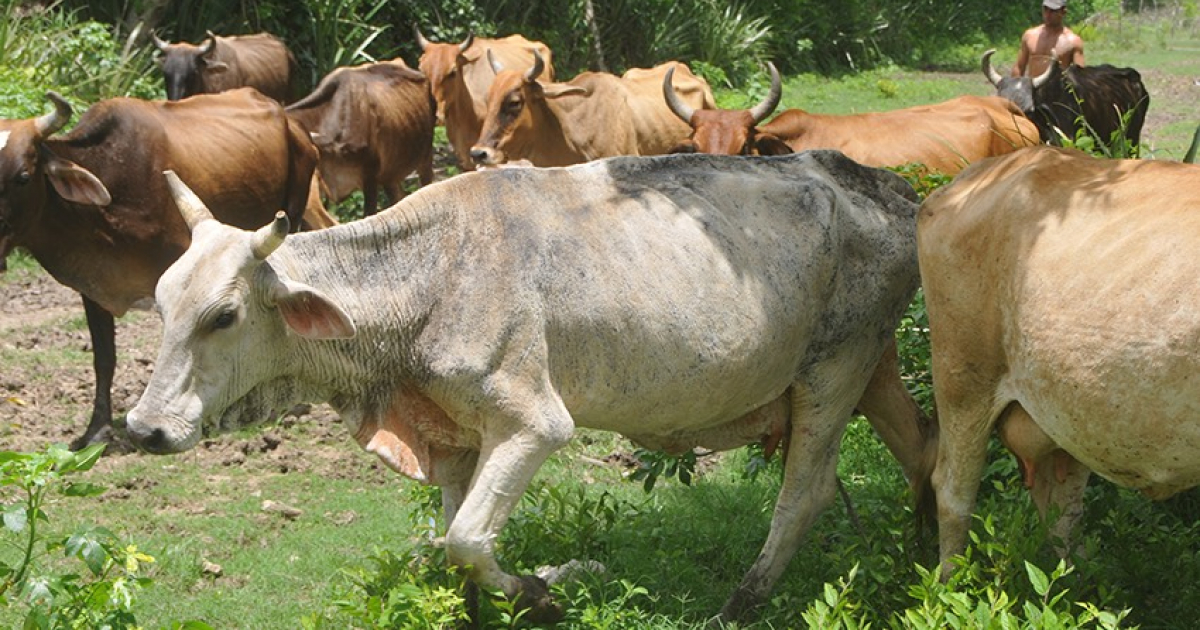Las Tunas, a Cuban territory, has become the area with the highest incidence of livestock theft and slaughter, specifically targeting cows and horses. In just the first four months of this year, 1,954 crimes have been reported involving the theft and illegal slaughter of 3,480 head of cattle and equine. According to Periódico26.cu, these violations were detected in 341 agricultural units across the province.
These alarming figures, averaging 29 thefts per day, primarily impact the municipalities of Jobabo, Majibacoa, and Las Tunas. In a meeting with the province's first secretary of the Communist Party, Walter Simón Noris, the police explained that all forms of crime have been observed, ranging from simple theft to forceful robbery and illegal slaughter.
Causes and Consequences of Livestock Theft
Investigations conducted by the Ministry of the Interior (Minint) revealed that these crimes were made possible due to "negligence" by both private and state owners. Key factors include the lack of daytime herders, overgrown areas, and landless owners who are responsible for ensuring water, food, and security for the animals, as well as promptly reporting any incidents.
Additionally, the lack of security in corrals and pastures, with deteriorated perimeter fences, often leads to the livestock escaping due to lack of food. This situation, as reported by local press, "hinders the fulfillment of milk and meat delivery plans to industries."
During the Communist Party meeting, partial results of an exercise to control the possession, use, and legality of land and livestock were presented. This extensive inspection will cover all eight municipalities and include visits to 22,172 landholders, with 25,722 land dossiers reviewed, according to the official newspaper, which provided no further details.
While Las Tunas leads the national ranking of cow and horse thefts, the problem is widespread across other provinces. Last year, Sancti Spíritus also reported significant theft and illegal slaughter cases in Trinidad, Fomento, Cabaiguán, Sancti Spíritus, and Taguasco.
A report from the Subdelegation of Livestock in the province detailed that from January to March, 147 fines were issued to ranchers for failing to correctly identify animals, not declaring livestock in the registry, not reporting births and purchases within the specified period, moving major livestock between different registries without documents, and possessing animals without being legal landholders.
Additionally, 15 fines were imposed for unauthorized livestock transactions. The state agency's report does not mention any arrests or actions against those stealing livestock from farmers.
In 2022, 82,445 animals were illegally slaughtered in Cuba: 45,315 cows and 37,130 horses. According to the Ministry of Agriculture, the territories with the highest incidents were Villa Clara (12,243), followed by Holguín (9,825), Matanzas (8,158), Cienfuegos (7,082), and Las Tunas (6,354).
Horse breeding in Sancti Spíritus has seen a steady decline over the past five years. In the last five-year period, over 24,000 horses have been lost due to theft and illegal slaughter. In addition to the decline in the equine population, ranchers face significant challenges in fostering horse breeding.
The illegal theft and slaughter of horses in Sancti Spíritus have also contributed to the loss of 19,119 animals between 2017 and 2021, with more than 5,000 lost in 2022 alone.
Understanding Livestock Theft in Cuba
Given the rising incidents of livestock theft and illegal slaughter in Cuba, it is important to address some key questions on the causes and implications of these crimes.
What are the main reasons for the high incidence of livestock theft in Las Tunas?
According to investigations, the primary reasons include negligence by both private and state owners, lack of daytime herders, overgrown areas, and inadequate security measures in corrals and pastures.
How does this situation affect local industries?
The rampant theft and illegal slaughter of livestock disrupt milk and meat delivery plans to industries, causing significant economic impacts.
What measures are being taken to address livestock theft in Cuba?
The government is conducting a comprehensive inspection to control land and livestock possession, use, and legality. This includes visiting thousands of landholders and reviewing land dossiers.
